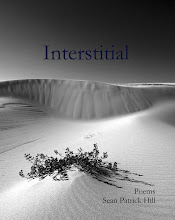
So, first you get out the Rilke--preferably Bly's rendering--and reread "Archaic Torso of Apollo". Do that now, then read on.
Go ahead and apply the Heidegger--OK, so the object of this poem is the unconcealing. But, unconcealing of what? Well, let's go with essence, whatever that is.
Now, at some point you'll want to get to Orr's Concerning the Book That Is the Body of the Beloved. Because what we want to stress here is the Beloved. What is that? Now we are moving forward.
I began reading Martin Buber, some excerpts from I and Thou, and some other discourses. Rexroth writes of him convincingly. The title is enough: what we are dealing with is the distinction between I and Thou.
Buber seperates relationships into categories, the lowest being between "I" and "it". This is alienation, in a sense--everything outside you is a mere "thing." The best-case-scenario is "I" and "Thou", this being the ability to see the "Other" as yourself, but more than just yourself. This goes beyond mere sympathy and empathy.
This is the realm of Truth...
This goes to the heart of it. Remember, if you can, childhood, the way you saw things: no distinctions. Everything was, in regard, an extension of your universe. Not necessarily self-centered, but you were a part of the whole. This is Blake's innocence.
We lose that. This is what Orr is getting at in his book of the Beloved. This is what Hesse is looking for in The Journey to the East. You can get back on track. Back to Blake's Beaulah. It is not lost, but right under your nose...
You are not looking for God, merely. You are God, yes, but it is more than that. This is the Nietzschean trap: you can't spend your life in a cave. In the end, Thoreau has to leave Walden Pond. You won't find God alone--Buber stresses this.
No: God is the Beloved. And the Beloved is the Thou. Therefore, our relationship to the Divine, the Shadow, is our relationship with the world, and even more specifically with other people. This is how we are judged: by our service to others.
Thou/Tao. Same thing. Our relationships define us. And our goodness.
Rilke says, "You must change your life" in order to see the statue/art/archaic torso as Thou. It is not a "thing", an "it." It is you. You are the archaic torso because it is in your realm of experience. You engage with it as you engage yourself.
This is Emerson, too: "I am a transparent eyeball: I see all."
There is no thinking your way into this. It is all necessarily action. How do we change our life then? Try Epictetus, Marcus Aurelius. First, get your own mind under control. Let the rest go. Kill them, as my wife says, with kindness. The only philosophy that matters--the only one--is one that gets your mind under control to allow it to reveal Truth practically. Practice this.
This is the same discipline that will endlessly help you with poetry. Poetry is a form of Yoga. This is what Plato means, more or less, by "thinking." It's meditation on relationship, nothing else. Forget the self--you'll just get tangled up there.
Let Ariadne hold the thread, and go to meet your inner monster. You don't need to explore every dark corner. It doesn't matter. The beast is waiting. It's always known you're coming. Look: in your poem--the Doctor is the Minotaur.
If you're not serving someone, you're not serving God/the Tao/Thou/the Beloved--Buber stresses this too. "You're gonna have to serve somebody" says Dylan. "It may be the Devil or it may be the Lord, but you're gonna have to serve somebody."
The poet Kenneth Koch may have done great things at Columbia University--who knows? But what he will be remembered for is what he did for the kids at P.S. 61 in New York, teaching them poetry, writing a book about it (Wishes, Lies, and Dreams) that still inspires teachers today. And me. This was his greatness. His service.
At that point, you can exercise the final frontier of abstraction: the Thou. The poem is not about the Thou, it is the Thou. In other words, and I think Orr said this, the poem isn't about emotion, it is emotion. It is energy, contained. Blake: "Energy is eternal delight."
Whitman: a Kosmos. He is utterly absorbed in the Thou. He changed his life. He saw America itself, every facet of it, as his Beloved.
America is the poem. Or, to put it another way, you are the poem. This is not an abstraction or a mind-game. Look at the world as if you were a kid again. Complete absorption in it. Live that way. Someone falls down, you help them. This is Kahlil Gibran's The Prophet.
My wife Erynn told me how her teacher watched a bunch of joggers pass the same spot in a park, looking down. They all kept going. When she went over to the spot, an old woman had fallen off the path and couldn't get up.
Do you see? They thought she was a thing. And a thing quickly becomes a No-thing.
I told Erynn, of all my memories of church, the one thing I remember the most is the Good Samaritan. I remember the painting. I remember the part in Godspell, me in 11th grade playing guitar for the play. This image is part of my private/universal language. Simply put, the Good Samaritan has guided my life.
The essence then, that we wish to unconceal is the Thou, the Beloved.
Hence, Neruda's Odas Elementales--look at the thing and see that it is you. Socks, fish at a market, anything. Freud would call this a projection, I think, and in that regard Freud is correct. This is where Jung meets Freud: we are surrounded by the symbols, the personal language. Write a dictionary of them: that is poetry. All the greats say this and do it: Stanford, Hugo, Rilke, on and on.
Define your world, for that is your power. That is what changes your life.
This is the ultimate task of humans: reuniting with the Divine. All poetry springs from that. Now look at most poetry today: I think, and you may agree, that the majority is looking at poetry as an It, as a thing they can control (workshopping, technique, voice, all of it). As something they can intellectualize. You can't. Poetry can only be understood by the heart. And the heart has a mind--we know this. So Stevens can still work for us, but to a point.
Then we must set out on our own. Galvin sees the world as Thou in his best work. Stanford, utterly. Stafford for sure.
The only poets to read are those who address this: Bly, Wright, Borges, and so on. And it comes, many times, through Grief. You can always attain the Divine by understanding your Grief. Not by complaining about it, or putting it on display. Not the psychoanalyst's couch.
When you write, you can avoid abstraction with this simple dictum: Only write from the heart, as if your audience was the Beloved, the Thou, Other Hearts.
When you ask Europeans to point to the part of their body where they "are," where they reside, they point, more often than not, to their heads.
The Japanese point to their hearts. Think about it.
There's nothing to "explain" or "question." The heart, my friend, is not illiterate. Learn it's language. It is us who are illiterate.
I'll wager a guess and say a great deal of poets speak from her head. Their intellect.
Man, we are the minority. Always will be. Always have been. There is nothing new under the sun. We must change our lives. We are in the League with Hesse, Buber, Rexroth, Van Gogh. We don't need to search for the Beloved anymore.
We are the Beloved.











